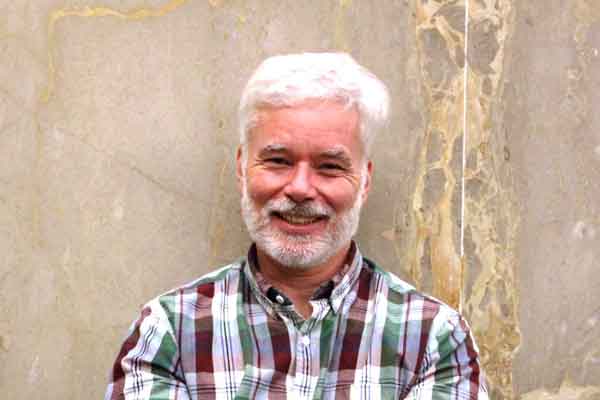AidData, an international development research lab at William & Mary, has launched a new Training Initiative to help government agencies, international organizations, development finance institutions, and private foundations more effectively respond to the needs and perspectives of low- and middle-income countries.
Our Training Initiative will focus on demand from journalists, government officials, and civil society organizations in the Global South—as well as those who work for government agencies, international organizations, development finance institutions, and philanthropies in the Global North—to use the lab’s methods, tools, data, and analysis in their daily work.
Over the past decade, we’ve designed and implemented one-off training programs for many of these groups on a diverse set of topics—including data and economics journalism, the global impact of Chinese development finance, better foreign aid tracking, the interaction of agriculture and climate change, how to conduct geospatial impact evaluations of development programs, and training for young leaders. We’re now planning to codify our training offerings and provide a range of online, in-person and hybrid delivery options.
AidData will draw upon lessons learned from our previous trainings for international organizations (including the FAO, the Global Environment Facility, and the Green Climate Fund), aid agencies (including USAID and Agence Française de Développement), private foundations (including the Gates Foundation), civil society networks (including BRI Monitor), and media organizations (including the Center for Excellence in Journalism at the Institute of Business Administration in Pakistan).
Many AidData staff and faculty hold graduate and undergraduate teaching responsibilities at William & Mary, one of the country’s leading institutions of higher education. To implement the online and video components of our Training Initiative, we’re working with William & Mary’s Studio for Teaching and Learning Innovation (STLI)—an academic innovation center established in 2019 to advance teaching excellence.
“STLI’s quality assurance, multimedia, and technology support will help ensure that AidData meets the highest standards of excellence when we design and deliver training programs,” said Sethu Nguna, who recently joined AidData as Training and Instructional Designer Manager. “Sethu is bringing new energy, focus, and rigor to the way that our research lab thinks about its instructional offerings. She’s helping us reimagine how AidData can influence global development policy and practice via education and empowerment,” said Ammar Malik, a senior research scientist at AidData.
Sethu comes to AidData with an extensive background in educational design and training management. She has more than a decade of experience in South Africa’s higher education and training sector, where she specialized in curriculum development as well as instructional and learning design. Her achievements include spearheading the first core-curriculum initiative at the University of Zululand, the first institutional instructional design strategy at the University of KwaZulu-Natal, as well as the development of a Data Journalism curriculum during her time at Code for Africa. At AidData, Sethu now oversees the strategic planning and implementation of training modules, including the design and development of engaging courses that cater to a diverse global audience across different learning environments.
The problem: Overcoming data and evidence barriers
Recognizing the critical role that government officials, civil society organizations, journalists, and funders play in shaping development policy and practice, AidData’s Training Initiative will focus on the tools and skills that these groups need to overcome barriers related to data and evidence availability, quality, and usage. “We are going to leverage AidData's unique areas of expertise, with a special emphasis on addressing unmet needs for rigorous evidence and actionable insights. Our two ‘north star’ objectives are to create more voice and choice for development decision-makers in the Global South and promote behavioral change among funding institutions in a way that is responsive to partner country needs and perspectives,” said Brad Parks, Executive Director of AidData.
The solution: From data to policy
Crafted around a newly developed Data to Policy (D2P) model, our Training Initiative will focus on areas where AidData has a well-established track record, such as benchmarking the policies and practices of aid agencies and development finance institutions, evaluating the impacts and cost-effectiveness of development programs in data-poor environments, and crafting arguments with development data and evidence that can influence public opinion and the priorities of funders and governments in partner countries. Specific training topics will include Data Journalism, Data Analysis and Visualization, Geospatial Impact Evaluation, China’s Role in Global Development Finance, and Shopping for Attractive Sources of International Credit.
Tailored for impact
Based on an innovative hybrid learning model, our Training Initiative will provide foundational online courses that focus on “threshold concepts” with dynamic in-person workshops and seminars. This mode of delivery, spearheaded by AidData’s in-house experts, will provide training participants with the flexibility to participate in a manner that suits their individual needs while focusing on educational experiences that are practical and engaging. We’ll also prioritize monitoring and evaluating educational outcomes at various stages of the learning process to facilitate continuous adaptation and improvement.
Join the Initiative
AidData invites stakeholders—across government ministries and agencies, media outlets, international organizations, development finance institutions, philanthropic organizations, and foreign service training institutions—to get in touch if they would like to collaborate on a stand-alone or integrated training program
Contact Alex Wooley, Director of Partnerships and Communications, at awooley@aiddata.org.



